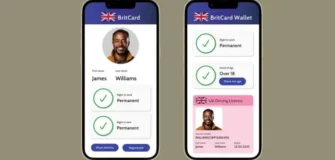Data Ethics in the Digital Age: How to Handle User Data Responsibly
Share

In today’s hyperconnected world, data is the new currency — but ethics is the new trust. Every click, purchase, and login generates valuable information that fuels business decisions, marketing campaigns, and artificial intelligence.
Yet, as data use expands, so does the moral responsibility to handle it ethically. Data ethics isn’t just about following the law — it’s about doing what’s right for the people behind the data.
This article explores what data ethics means, why it matters, and how businesses can responsibly collect, use, and protect user information.
What Is Data Ethics?
Data ethics refers to the moral principles guiding how organizations collect, store, share, and analyze data. It focuses on transparency, fairness, accountability, and respect for individual rights.
| Ethical Principle | What It Means | Example |
|---|---|---|
| Transparency | Be honest about how data is collected and used | Publishing a clear privacy policy |
| Consent | Get explicit permission before using data | Asking users before tracking behavior |
| Minimization | Collect only what’s necessary | Limiting forms to essential fields |
| Accountability | Take responsibility for data misuse | Having a DPO and response plan |
| Fairness | Avoid biased or manipulative data use | Preventing algorithmic discrimination |
Why Data Ethics Matters More Than Ever
1. Trust Is the New Currency
In a world where data breaches make headlines weekly, ethical data practices build trust. Users are more likely to engage with businesses that respect their privacy.
2. Compliance Isn’t Enough
Laws like GDPR, NDPA (Nigeria), and CCPA provide minimum standards. True data ethics goes beyond compliance — it’s about integrity, not just legality.
3. Reputation and Brand Loyalty
Companies that act responsibly with data enjoy stronger customer loyalty. Studies show 87% of consumers are less likely to trust a company after a privacy scandal.
4. AI and Big Data Challenges
AI systems learn from massive datasets. Without ethical oversight, algorithms can amplify bias and invade privacy. Ethical governance ensures AI is transparent, fair, and human-centric.
The Pillars of Responsible Data Handling
| Pillar | Description | Practical Example |
|---|---|---|
| 1. Informed Consent | Users must know and agree to how their data is used | Opt-in checkboxes with clear explanations |
| 2. Purpose Limitation | Data collected for one purpose shouldn’t be reused without permission | Using signup info only for account creation |
| 3. Data Minimization | Collect only what’s essential | Avoid asking for gender or DOB unless necessary |
| 4. Secure Storage | Protect data from breaches and unauthorized access | Encrypt databases and use 2FA |
| 5. Fair Processing | Avoid discriminatory or manipulative data practices | Audit algorithms regularly for bias |
| 6. Right to Access and Erasure | Users should control their data | Offer “Delete My Data” options |
Real-World Examples of Data Ethics in Action
Apple’s Privacy-First Model
Apple markets privacy as a core value — not a feature. By minimizing data collection and encrypting user communications, it sets a gold standard for ethical design.
Facebook’s Cambridge Analytica Scandal
A personality quiz app misused data from 87 million users for political ads. This remains one of the most notorious examples of unethical data use.
Nigerian Startups Adopting NDPA Compliance
Forward-thinking Nigerian tech startups now integrate data protection by design, building user trust from the ground up.
Implementing Ethical Data Practices in Your Business
- Start with a Data Ethics Policy
Draft internal guidelines defining what’s acceptable, including data collection limits and sharing rules. - Train Your Team
Ensure everyone — from marketers to developers — understands ethical handling of user data. - Be Transparent with Users
Use clear, non-legal language in your privacy policy. Explain what you collect, why, and for how long. - Audit Your Data Flow
Map how data moves through your systems to identify unnecessary collection or storage points. - Use Privacy-Enhancing Technologies (PETs)
Techniques like differential privacy, data anonymization, and encryption reduce risk while preserving value.
Data Ethics and the Law
| Region | Law | Ethical Focus |
|---|---|---|
| EU | GDPR | Consent, transparency, data minimization |
| UK | DPA 2018 | Fair and lawful processing |
| Nigeria | NDPA 2023 | Data subject rights and accountability |
| US (California) | CCPA | Data access and opt-out rights |
| Canada | PIPEDA | Meaningful consent and data accuracy |
Compliance helps avoid fines, but ethical leadership builds reputation — a priceless competitive advantage.
FAQ
Q1: Is data ethics the same as data privacy?
Not exactly. Data privacy focuses on compliance and protection, while data ethics focuses on moral responsibility and fairness.
Q2: Who should oversee data ethics in an organization?
Ideally, a Data Ethics Officer or Data Protection Officer (DPO) ensures policies are upheld.
Q3: Can small businesses apply data ethics?
Absolutely. Even small steps — like clear consent and minimal data collection — make a huge difference.
Conclusion
Data ethics defines how organizations behave in the digital era. By collecting and using information responsibly, you don’t just comply with laws — you build trust, loyalty, and long-term success.
In the digital age, the most ethical companies will be the most trusted.






































Leave a Reply